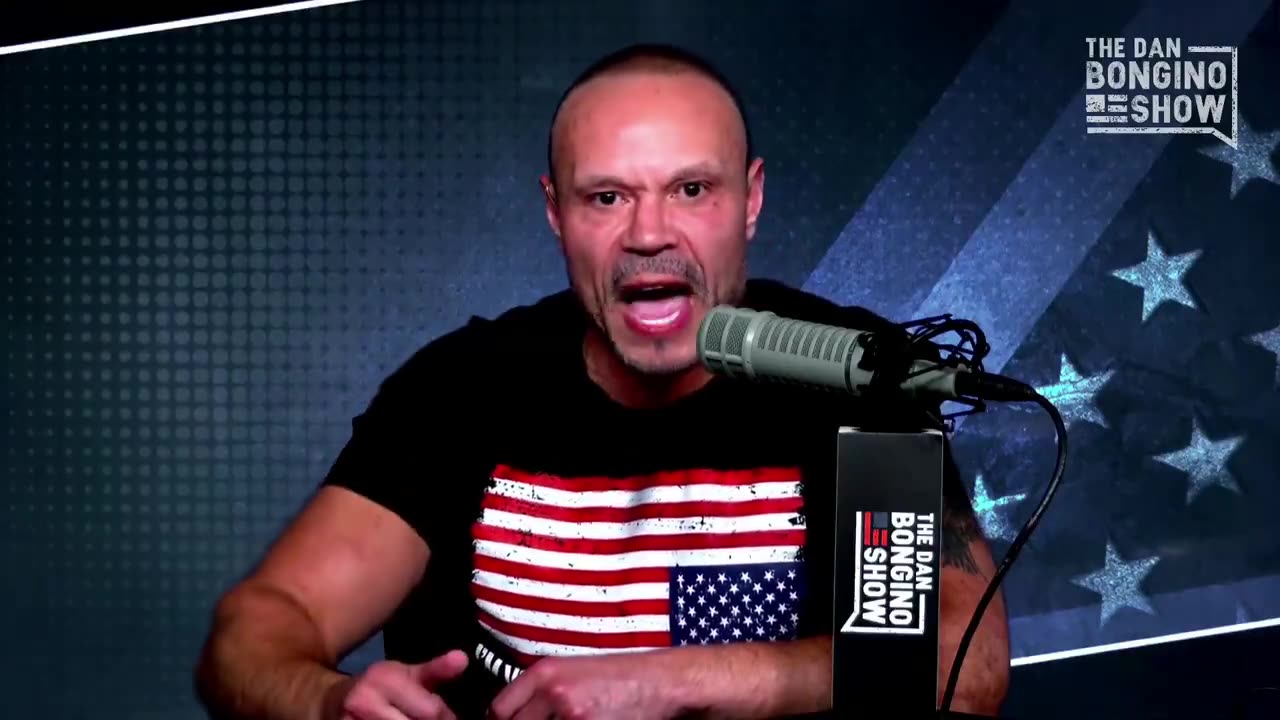
Jeannie
Dually LicensedForum Discussions Started
-
All Discussions
-
-
-
-
Do mortgage lenders look for enough cash to cover preapproval amount of the cost needed for the down payment and closing costs of the home in contract?
-
This discussion was modified 7 months, 2 weeks ago by
 Gustan Cho.
Gustan Cho.
-
This discussion was modified 7 months, 2 weeks ago by
-
What is the loan estimate in the mortgage process? What is the closing disclosure? What is the difference between the loan estimate and closing disclosure? Can the loan estimate and closing disclosure be issued the same day? Does the closing disclosure mean the mortgage loan is approved? Should the closing disclosure closely mirror the loan estimate?
-
What is a credit supplement. Why do mortgage lender need to do a credit supplement on a borrower. For what reasons? How does the credit supplement process work. Can you run several case scenarios where a mortgage processor or underwriter need to do a credit supplement and the importance of credit supplements. Do credit supplements delay the mortgage process and the closing?
-
What is predatory lending in the mortgage industry. What is meant by predatory lending. What are the most common predatory loans. How do I know if a loan is predatory. Which answer is an example of predatory lending. Is predatory lending against the law and not legal? How does a loan officer realize that the loan he or she is originating borders on predatory lending.
-
What are high-cost mortgage loans? What is the difference between high-cost versus high-priced loans. What is true about high-cost loans. Why can’t mortgage loan originators not understand high-cost loans and the violation of high-cost. What is high-cost lending. What is high-cost predatory lending. What is a high-priced loan? Can you please explain high-cost requirements. What are protections against high-cost mortgage loans.
-
What’s the minimum credit score and debt-to-income ratio required to get the best rates on a mortgage loan.
-
-
An “asset depletion mortgage loan” is a type of mortgage that is designed for borrowers who have significant assets but may not have a traditional source of income, such as a regular job or salary. These loans are sometimes used by retirees or self-employed individuals who have substantial savings and investments but may not meet the standard income requirements for a traditional mortgage.
In an asset-depletion mortgage loan, the lender considers the borrower’s assets, such as cash, stocks, bonds, retirement accounts, and other investments, as a source of income to qualify for the mortgage. The lender calculates the borrower’s monthly income by depleting or drawing down on their assets over a specified period, often 3-5 years. This calculated income is then used to determine the borrower’s ability to make mortgage payments.
It’s essential to note that asset depletion loans typically come with higher interest rates than traditional mortgages because lenders consider them riskier. Borrowers should carefully consider the terms and conditions of such loans and be aware of the potential risks and costs involved.
These types of loans can be complex, and eligibility requirements may vary from lender to lender. Borrowers interested in asset depletion mortgage loans should work closely with a qualified mortgage professional to understand the specific criteria, terms, and options available to them.
-
A “No-Ratio DSCR Loan” typically refers to a type of commercial real estate financing that doesn’t require the calculation or consideration of the debt-service coverage ratio (DSCR) for the property being financed. Let’s break down what this means:
-
Debt-Service Coverage Ratio (DSCR): The DSCR is a financial metric used in real estate lending, especially for commercial properties. It represents the property’s ability to generate enough income to cover its debt obligations, primarily the mortgage payments. The DSCR is calculated by dividing the property’s net operating income (NOI) by its total debt service (mortgage payments).
-
No-Ratio: When a loan is referred to as “No-Ratio,” it means that the lender does not consider the DSCR when evaluating the borrower’s eligibility for the loan. This can be beneficial for borrowers who may not meet the traditional DSCR requirements but have other strong financial attributes or unique circumstances that make them creditworthy.
In essence, a No-Ratio DSCR Loan is a type of financing option where the lender focuses less on the property’s income-generating ability and more on other aspects of the borrower’s financial situation, such as their creditworthiness or assets. This can be useful for borrowers who have unconventional income sources or situations that make it challenging to meet traditional DSCR requirements.
It’s worth noting that these types of loans may come with higher interest rates or different terms compared to loans where the DSCR is a critical factor in the lending decision. Additionally, they may be more common in certain niche or specialized lending markets. Borrowers considering such loans should carefully review the terms and assess the overall cost and risk associated with them.
-
-
French Bulldogs are a popular companion breed known for their distinctive bat-like ears, muscular build, and charming personalities. Here are some key facts about French Bulldogs: Appearance of French Bulldogs: Small breed, typically weighing under 28 pounds. Compact and muscular body with a large square head. Distinctive “bat ears” that are wide at the base and rounded at the top. Short, smooth coat that comes in a variety of colors like brindle, fawn, white, and brindle & white. Pushed-in snout and large square jaw. Temperament of French Bulldogs: Known for their affectionate, clownish, and charming personalities. Generally get along well with other pets and children when socialized properly. Tend to be quiet dogs, but some can be stubborn or mischievous. Make good apartment dogs as they don’t require extensive exercise. Can be protective of their owners but are not known as strong watchdogs. Health of French Bulldogs: Brachycephalic (short-nosed) breeds that can have breathing issues. Prone to heat exhaustion due to their shortened airways. May suffer from spinal issues, eye problems, and allergies. Generally healthy breed but require grooming and cleaning of wrinkles. History of French Bulldogs: Originated in England in the 1800s, likely from English Bulldogs. Became popular in France among lace workers, leading to their name. Brought to the United States after World War I by returning soldiers. Recognized by the AKC in 1898. French Bulldogs have risen in popularity as loving, entertaining companion dogs. Their comical expressions and unique looks charm many owners. However, their potential respiratory issues require attentive care from owners.
https://www.youtube.com/watch?v=x7qVs-cM0nU
-
This discussion was modified 9 months, 3 weeks ago by
 Jeannie.
Jeannie.
-
This discussion was modified 9 months, 3 weeks ago by
-
How much is the going rate to build a single-family home in a descent middle class area. I know the lot value varies.
-
Have you heard the news that Illinois will allow non-citizens to become police officers? What is all that about?
-
A business line of credit is a financial tool that provides a revolving credit limit to a business, allowing them to borrow funds as needed up to a predetermined limit. It is a flexible form of financing that can help businesses manage their cash flow, cover short-term expenses, seize opportunities, and address unexpected financial challenges. Here are some key aspects of business lines of credit:
-
Revolving Credit: A business line of credit works similarly to a credit card, in that it offers a predetermined credit limit that can be used repeatedly. As you repay the borrowed amount, the available credit is replenished, making it a renewable source of funding.
-
Types of Business Lines of Credit:
- Secured Line of Credit: Requires collateral (e.g., business assets or personal assets) to secure the credit line, typically resulting in lower interest rates.
- Unsecured Line of Credit: Does not require collateral but may have higher interest rates and stricter qualification requirements.
-
Usage Flexibility: Businesses can use a line of credit for various purposes, such as covering operational expenses, purchasing inventory, managing cash flow gaps, funding marketing campaigns, or investing in growth opportunities.
-
Interest and Fees: Borrowers are typically charged interest on the amount borrowed and may also incur fees, such as annual fees or withdrawal fees. Interest rates can be variable or fixed, depending on the terms of the credit line.
-
Repayment Terms: Lines of credit have minimum monthly payments, which often include interest charges and a portion of the principal balance. The repayment terms can vary, but businesses can choose to pay off the balance early or maintain an ongoing balance within the credit limit.
-
Qualification Criteria: Lenders evaluate a business’s creditworthiness, financial stability, and repayment ability when approving a line of credit. Factors such as credit scores, business revenue, time in operation, and personal guarantees may influence approval and credit limit decisions.
-
Renewal and Review: Business lines of credit are typically reviewed periodically, and lenders may adjust credit limits based on the business’s performance and creditworthiness. Renewal terms can vary by lender.
-
Advantages:
- Flexibility: Access funds as needed, up to the credit limit.
- Cost-Effective: Interest is only paid on the borrowed amount.
- Cash Flow Management: Helps businesses smooth out cash flow fluctuations.
- Quick Access: Typically, it’s faster to obtain a line of credit compared to a traditional loan.
-
Disadvantages:
- Interest Costs: Borrowing comes with interest charges, which can add up.
- Qualification Requirements: Businesses need to meet certain criteria to secure a line of credit.
- Risk of Overextension: Mismanagement of a credit line can lead to debt problems.
Businesses should carefully consider their financial needs and ability to repay before obtaining a line of credit. It’s important to compare offers from different lenders to find the most favorable terms and use the credit responsibly to support business objectives.
-
-
Non-QM Mortgage Brokers is a national mortgage broker and correspondent lender licensed in 48 states, including Washington, DC, Puerto Rico, and the United States Virgin Islands. Non-QM Mortgage Brokers is a wholly-owned subsidiary of Gustan Cho Associates, Inc. Gustan Cho Associates, also referred to as GCA Mortgage Group NMLS 2315275 is a dba of NEXA Mortgage, LLC NMLS 1660690, the nation’s largest mortgage broker and correspondent lender with nearly 3,000 licensed mortgage loan originators and equally number of support, operations, and third-party independent contractor service providers. Non-QM Mortgage Brokers specialize in providing mortgage options for individuals who may need to meet the standard lending criteria set by the Consumer Financial Protection Bureau (CFPB). Licensed mortgage loan originators at Non-QM Mortgage Brokers offer more flexible mortgage loans regarding income and credit requirements, which can benefit borrowers such as business owners, self-employed individuals, and gig workers.
Here are some key features of non-QM loans:
Flexible Income Documentation: Borrowers may use alternative methods, such as tax returns, bank statements, or 1099s, to demonstrate their ability to repay the loan.
Higher Debt Limits: Some non-QM loans allow for debt-to-income ratios over 50%, compared to the standard 43%.
No Waiting Period After Bankruptcy: Certain non-QM loans do not require a waiting period after bankruptcy or foreclosure, enabling quicker access to a mortgage.
Higher Down Payment Requirements: Non-QM loans often require a larger down payment, typically between 15% to 20%.
Higher Interest Rates: Due to the increased risk associated with these loans, non-QM mortgages usually come with higher interest rates.
If you’re considering a non-QM loan, it’s important to shop around and compare offers from different lenders to find the best terms for your situation. Remember that while non-QM loans can provide a path to homeownership for those who don’t qualify for traditional mortgages, they also come with higher costs and risks. It’s advisable to consult with a financial advisor or mortgage broker to understand all the implications before proceeding. Non-QM Mortgage Brokers is the nation’s largest mortgage broker of non-qualified mortgages. For more information, visit us at Non-QM Mortgage Brokers, Inc. at
https://www.non-qmmortgagebrokers.com/
non-qmmortgagebrokers.com
Home - Non-QM Mortgage Brokers
Finance Your Dream Home Easily With Us Problem Credit? Need a Creative Mortgage Lender? Talk To Us. We Are Able To finding The Perfect Mortgage For Your Dream Home Find A Lender With Us Fill out the form by click … Continue reading
-
Dan Bongino livid at Bill O’Reilly because Bill O’Reilly called Dan Bongino a fanatic because Dan Bongino said even Democrats don’t want illegal immigrants to vote. Look at Dan Bongino podcast. A lot of F# and MF BOMBS.
https://rumble.com/v52t19p-dan-bongino-destroyed-bill-o-riley-wow-.html
rumble.com
Dan Bongino Destroyed Bill O Riley wow 🤯
Tip/Donating (everything I do is free, so any tips are appreciated) https://www.givesendgo.com/theunshakeablepundit Truth Seeker in my Spare Time You Can Follow Me at: Telegram is my home base of Oper
-
-
-
I think the C-8 Corvettes are hands down the best buy of the century. The C-8 Corvettes Corvertible are so sharp and priced for a fraction than its Italian exotic car countertparts. I really do not know what the price is on C-8 Corvettes but gave up looking for one because at one time, the C-8 corvette was selling $40,000 or more about its $70,000 msrp. Does anyone have any more information about the latest prices on the C-8 Corvettes? Are Corvettes a good investment?
-
-
Breaking news from heavy set obese Chris Christie Presidential Election Campaign is the heavy set former New Jersey Governor and Trump Ally turned enemy has suspended his 2024 Presidential Election Campaign due to his addiction to fried chicken 🍗
-
There are so many scammers in the United States. Every part of the country is invested by fraudsters at all levels. I know there are many different types of fraud and each type of fraud is stealing. Fraud is when a natural person maliciously deceives its victims by scamming their victims with the goal of taking advantage of the victim thus causing financial hardship. Common goals of scammers committing fraud is to take money, or assets of monetary or intellectual value or stealing private data, and information from you, your family, or your employer, or your business. Scammers commit fraud via email, text, phone or in person, either on the street or on your doorstep. Some adults may be especially vulnerable to fraud and financial abuse.
-
This discussion was modified 2 months, 2 weeks ago by
 Sapna Sharma.
Sapna Sharma.
-
This discussion was modified 2 months, 2 weeks ago by
-
Animal lovers are paying big bucks for dogs. French Bulldogs are raking in big bucks. French Bulldogs are fetching as much as one million dollars per pup. Look at this video about getting rich breeding French Bulldogs



